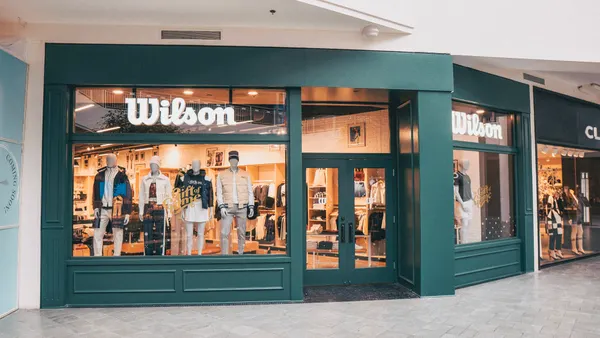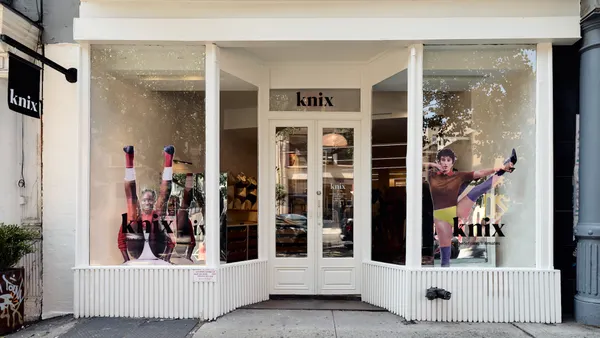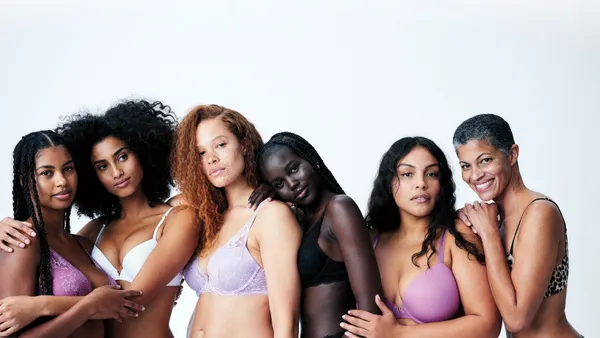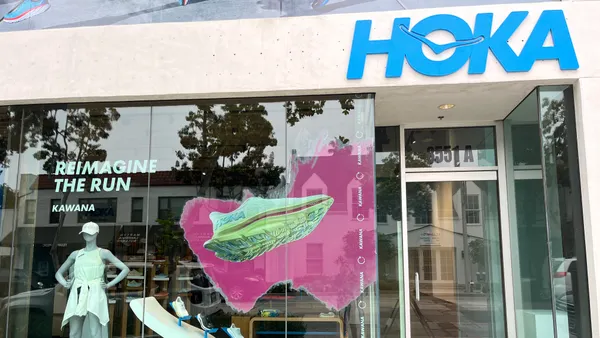Dive Brief:
-
Mattress startup Casper on Monday said it had closed a $170M Series C investment round, led by Target, and joined by Tresalia, IVP, Norwest, Lerer Hippeau Ventures, NEA, and Irving Capital.
-
Celebrities, including musicians, actors and athletes also join the round as the likes of Kevin Spacey, Curtis "50 Cent" Jackson, Carmelo Anthony, Kyrie Irving, Shaun White, and Andre Iguodala helped bring total funding to date to $240 million, according to a Casper press release.
-
The new funds will help accelerate Casper's product innovation, with the launch of a San Francisco-based product innovation and design lab, which will tackle innovations in soft goods and the future of connected sleep. The funding will also enable the mostly e-commerce retailer to traverse online and offline distribution at scale, the company said.
Dive Insight:
Since launching in 2014, Casper has managed to stand out in the crowd of upstart online mattress companies, which includes rivals Lessa, Yogabed and Tuft & Needle. They’ve all disrupted the mattress industry by scaling back the profusion of mattress types, qualities, prices and sellers to offer a lean list of equally priced mattresses.
The success of those businesses depends in large part on a model that allows them to inexpensively ship a mattress in a box so that it slowly unfolds until it’s ready to fit on a bed. But online sales may be hitting their limit in a retail space where many shoppers still head to stores to bounce, lie down and try to imagine how the mattress will feel at home. "As we look ahead to Casper's next chapter, we see the future of sleep driven by unparalleled R&D, and an evolved consumer experience," Casper CEO and co-founder Philip Krim said in a statement.
That’s making brick-and-mortar a necessary play. Enter Target, which was reportedly interested in acquiring the startup outright to the tune of $1 billion; a Target spokesperson declined to comment to Retail Dive on that report. Earlier this month Target announced a partnership with the online mattress upstart and as of Sunday, Casper accessories have been available for sale in more than 1,200 stores and the company's signature mattress will be available through Target's website.
Target has a long history of working with premium or trendy designers and brands, and through its TechStars partnership the company has also invested money and mentorship in startups. Those Target practices make both its investment in Casper and the in-store tie-up unsurprising for a retailer that has sought to differentiate its merchandise for decades.
"Target invested in Casper because we believe in their team, their ideas and their vision for re-imagining sleep," a Target spokesperson told Retail Dive last month. "The strategic partnership offers Casper access to an established retail brand and gives Target an opportunity to work with a future-focused digital brand that is exploring an area that is meaningful for our guests — sleep and wellness. We’re looking forward to exploring the future together."
Target's emphasis on differentiation has helped the retailer to compete on something other than low prices.
The e-commerce investment tack is decidedly different than Walmart's strategy to boost e-commerce sales. The retail giant, in contrast to Target’s more cautious approach, has used its massive cash reserves to buy startups outright starting with the $3.3 billion takeover of Jet.com last year. Target reportedly also looked at buying Jet, but found the company over-priced and similarly contemplated acquiring online consumer product bulk sales company Boxed, according to an earlier report from The Wall Street Journal. Instead, Target is piloting its own answer to Boxed and Amazon Pantry, dubbed Target Restock.
Meanwhile, Walmart is hungrily gobbling up digital players. On Friday the retail giant announced it would pay $310 million in cash for menswear site Bonobos. Late last year Walmart bought online shoe retailer Shoebuy, in a challenge to Amazon's Zappos, for $70 million. So far this year, in addition to Bonobos, Wal-Mart has paid $51 million in cash for online outdoor retailer Moosejaw and another $40 to $60 million for vintage-inspired online women’s apparel Modcloth. Walmart plans to run those businesses as operations distinct from its own, in light of their widely differing branding and pricing.
By contrast, Casper and Target fit neatly together, in terms of branding and both companies' broader strategies. Target is seeking to expand its lineup of compelling merchandise and Casper is looking to broaden its sales strategy beyond e-commerce. The startup has plans for its own stores, pop-ups and a partnership with furniture retailer West Elm. "With only 5% of mattresses currently being sold online in the United States, I suspect this is more about bringing Casper mattresses into Target’s stores than an investment by Target in a pure play internet retailer," Nick Egelanian, president of retail development consulting firm SiteWorks International, said in an email to Retail Dive.
That approach to investments in, and partnerships with, new brands doesn't mean that the general merchandiser won't be taking on whole companies, Target Chief Information and Digital Officer Michael McNamara recently told The Wall Street Journal, “Thinking about possible mergers and acquisitions is something we do every day as a regular course of business,."














